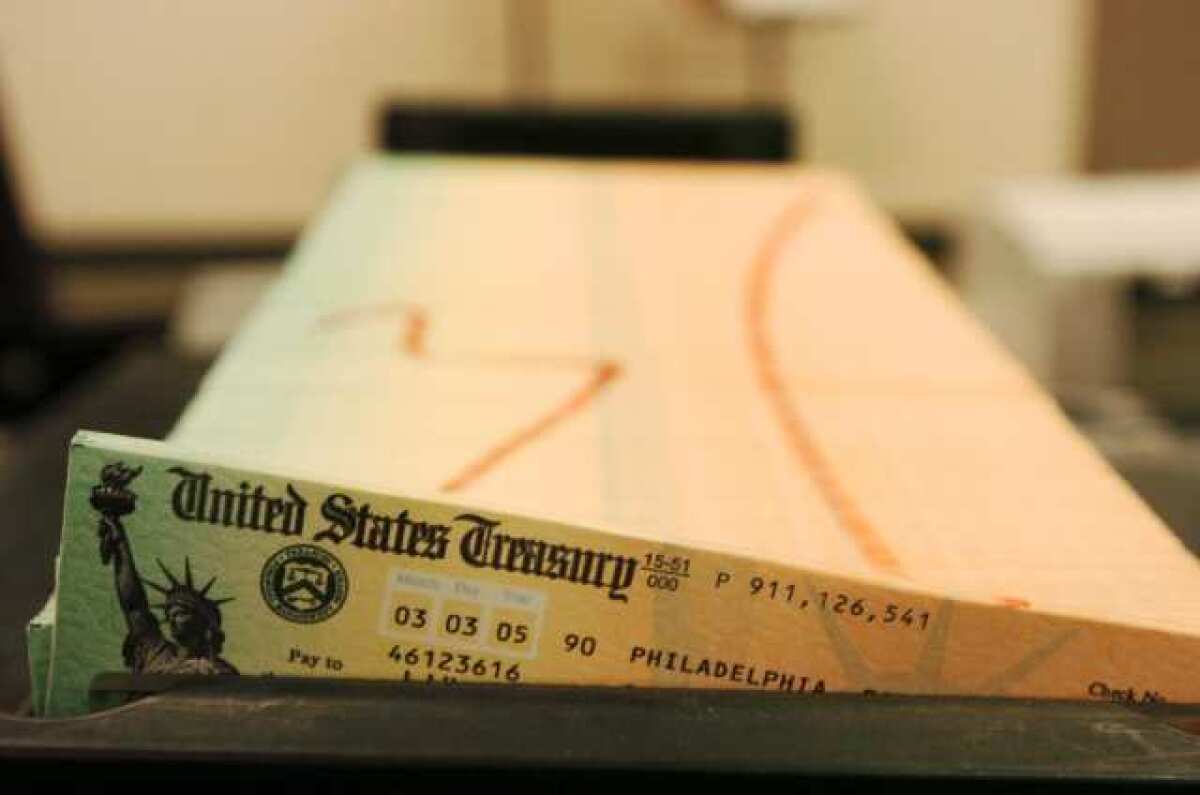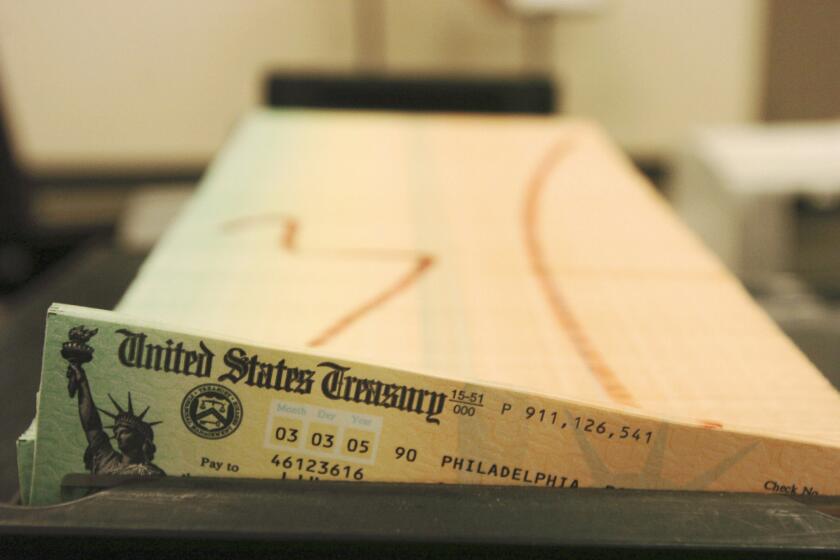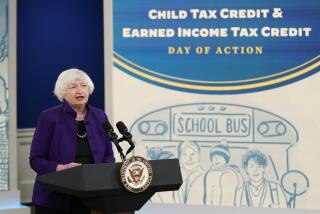Who qualifies for the coronavirus stimulus payments?

- Share via
Congress has passed, and President Trump has signed, a $2-trillion economic stimulus package — the largest of its kind — designed to send money directly into Americans’ pockets while also aiding hospitals, businesses and local governments struggling during the pandemic.
In addition to providing many Americans with a one-time payment of up to $1,200, the bill includes $500 billion in loans to struggling businesses, $377 billion in loans and grants for small businesses, $150 billion for local, state and tribal governments facing a drop in revenue and $130 billion for hospitals dealing with an onslaught of patients.
Under the expanded unemployment program, assistance would be available to people who had the promise of a job that was postponed or canceled because of the coronavirus threat and to those whose workplaces closed because of it.
When will stimulus checks go out? Who qualifies for a check? And other frequently asked questions.
So who qualifies for the stimulus? The short version: All U.S. residents are eligible as long as they have a work-eligible Social Security number and meet the income requirements.
- The Internal Revenue Service will base the payments on a person’s adjusted gross income on his or her 2018 tax return (or their 2019 return if filed). It is a person’s wages, dividends, capital gains and other income minus 401(k) payments, student loan interest and other deductions. The figure can be found in Box 7 on a person’s 2018 federal 1040 tax return or Box 8b on 2019 returns.
- All Americans with an adjusted gross income below $75,000 (or $150,000 for a married couple) would receive the full amount: $1,200 per adult or $2,400 for a married couple, plus $500 per dependent child.
- People with no income are eligible for the same amount — $1,200 per adult and $500 per dependent child.
- People whose income is entirely from nontaxable, means-tested programs — such as Supplemental Security Income benefits — are eligible. Those people don’t need to have filed a tax return to get a stimulus check. The government already has their information through the Social Security Administration.
- People who have been listed as a dependent on someone else’s tax return — such as a young adult — are not eligible to receive a payment.
- Americans who make between $75,000 and $99,000 (or married couples making between $150,000 and $198,000) are eligible for a portion of the payment. The rebate amount is reduced by $5 for each $100 in income over $75,000 (or $150,000 for a married couple.) The amount per child is not adjusted by income, but is only available to parents with income of $99,000 or less and married couples with income of $198,000 or less.
Some more information on the payments:
- The payments are not taxable, according to a Senate aide.
- Payments could arrive in as early as three weeks for people who have already set up direct deposit with the IRS, which is about 50% of Americans, according to Treasury Secretary Steve Mnuchin. Others may have to wait weeks or even months to see their money because it will take the IRS longer to get the paper checks printed. Prepaid debit cards may be sent out as an alternative.
More to Read
Inside the business of entertainment
The Wide Shot brings you news, analysis and insights on everything from streaming wars to production — and what it all means for the future.
You may occasionally receive promotional content from the Los Angeles Times.












